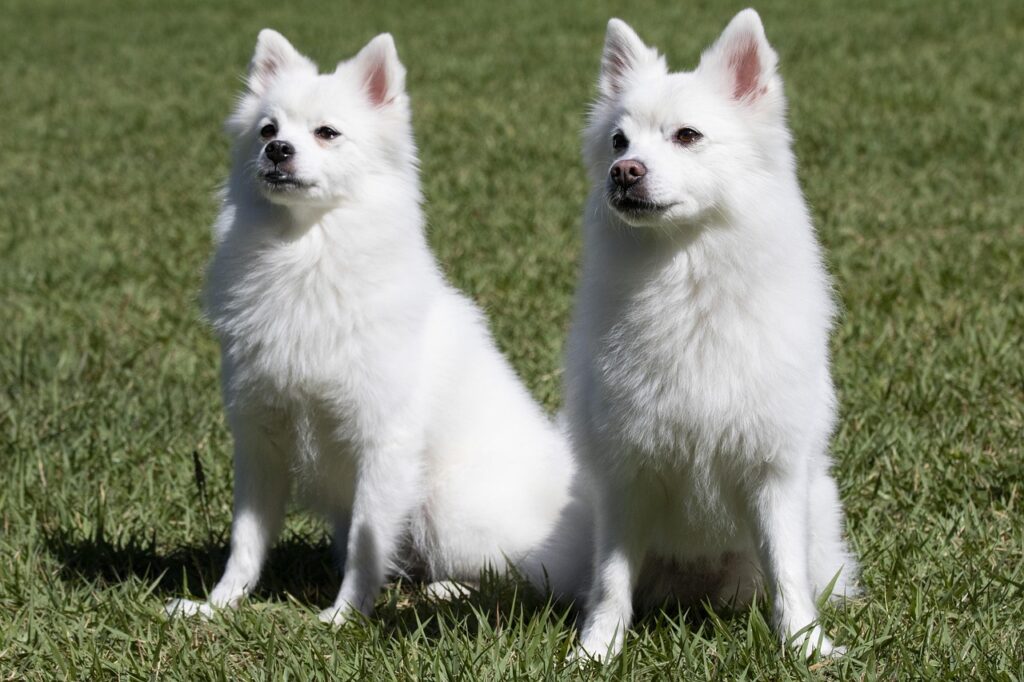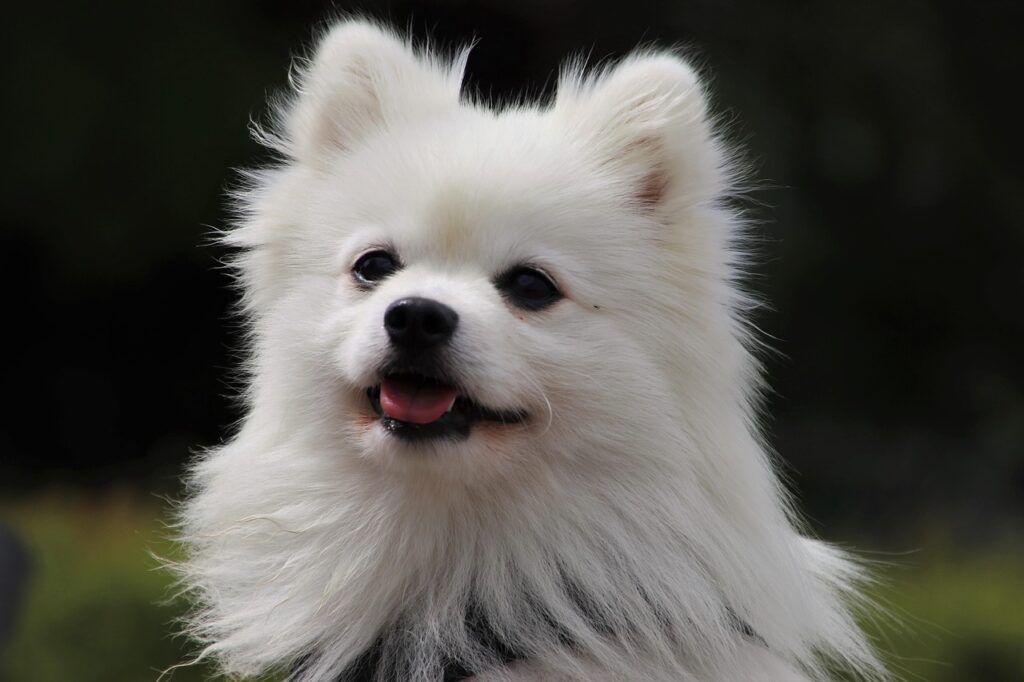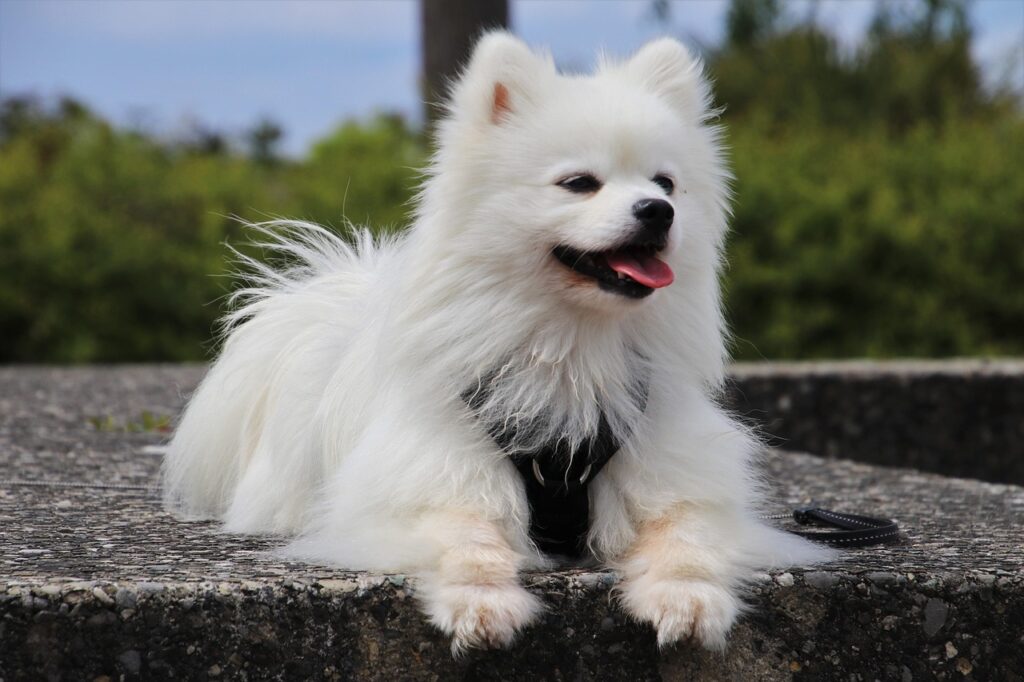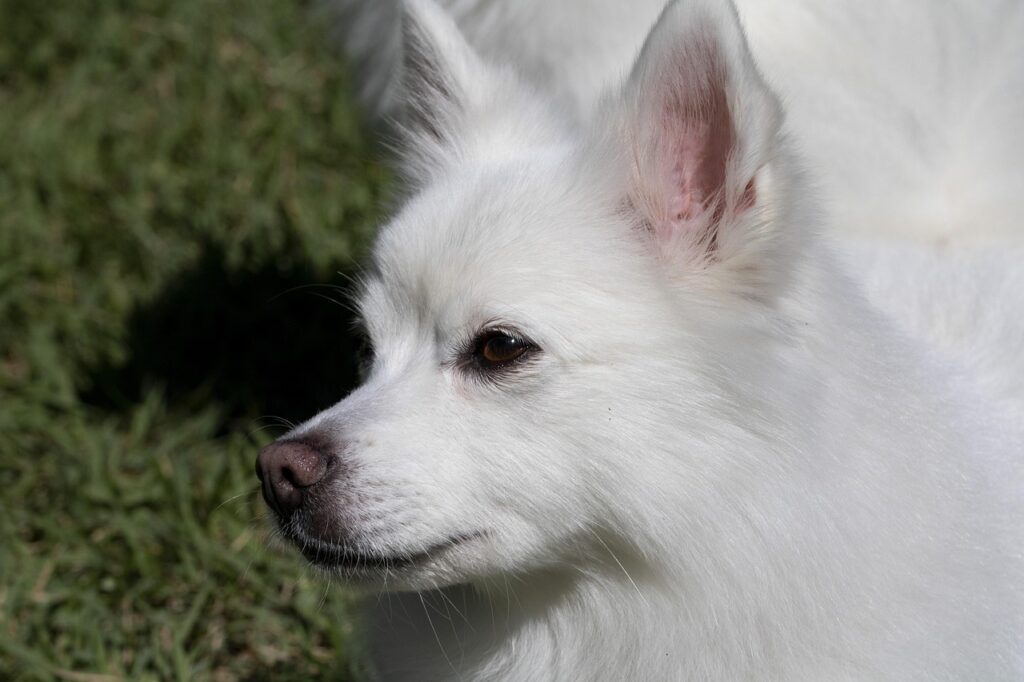The Japanese Spitz has become increasingly popular in Singapore over the past decade, winning hearts with its cloud-like appearance and vibrant personality. This small to medium-sized spitz breed resembles a miniature Samoyed with its pristine white coat and fox-like face. For Singaporean pet owners, understanding the specific care requirements for these dogs in a tropical climate is essential. This comprehensive guide explores everything you need to know about raising a healthy, happy Japanese Spitz in Singapore’s unique environment, from managing their thick coat in humid weather to addressing common health concerns and training considerations.

Climate Considerations for Japanese Spitz in Singapore
The tropical climate of Singapore presents unique challenges for Japanese Spitz owners. These dogs originate from Japan, where the climate is generally cooler and less humid. In Singapore’s year-round heat and humidity, proper care is crucial to prevent heat-related issues.
Indoor living is highly recommended for Japanese Spitz in Singapore, with air conditioning during the hottest parts of the day. When exercising outdoors, early mornings or evenings are ideal times to avoid peak heat. Always provide ample fresh water and watch for signs of overheating, including excessive panting, lethargy, or seeking cool surfaces to lie on.
Grooming Requirements for Japanese Spitz
The signature white double coat of the Japanese Spitz requires regular maintenance, especially in Singapore’s climate. This breed experiences two heavy shedding seasons annually, during which daily brushing is necessary. During normal periods, brushing 2-3 times weekly should suffice to minimize shedding and prevent matting.
Despite their pure white appearance, Japanese Spitz are surprisingly self-cleaning dogs. Their coat naturally repels dirt, and they typically need baths only once every 4-6 weeks unless they get particularly dirty. Over-bathing can strip essential oils from their skin and coat, potentially leading to skin issues.
For Singaporean owners, using a dog-specific conditioner after shampooing helps manage the coat in humid conditions. Additionally, regular ear cleaning, tooth brushing, and nail trimming should be part of your grooming routine.

Nutrition and Diet
A balanced diet is essential for maintaining your Japanese Spitz’s health in Singapore. High-quality commercial dog food formulated for small to medium active breeds works well, but many owners opt for a mix of dry kibble, wet food, and occasional fresh additions.
In Singapore’s heat, proper hydration is critical. Always provide fresh, clean water, and consider serving moistened food during exceptionally hot periods. Due to the warm climate, Japanese Spitz in Singapore may need slightly fewer calories than their counterparts in cooler regions, as they may expend less energy staying warm.
Monitor your dog’s weight regularly, as obesity can exacerbate heat sensitivity and lead to health problems. If your Japanese Spitz appears to be gaining weight, consult with a veterinarian about adjusting their diet accordingly.
Exercise and Mental Stimulation
Despite their fluffy appearance, Japanese Spitz are energetic and playful dogs requiring regular exercise. In Singapore, timing is crucial when planning outdoor activities. Early morning or evening walks avoid the day’s heat while providing necessary exercise.
Indoor play sessions are excellent alternatives during particularly hot or rainy days. Japanese Spitz are highly intelligent dogs that benefit from mental stimulation through puzzle toys, training sessions, and interactive games.
Many Japanese Spitz owners in Singapore take advantage of indoor dog parks and pet-friendly malls for exercise in air-conditioned comfort. Swimming can also be an excellent option, although not all Japanese Spitz enjoy water activities.

Training Your Japanese Spitz
Japanese Spitz are intelligent and eager to please, making them relatively easy to train with the right approach. Positive reinforcement techniques work best, using praise, treats, and play as rewards for desired behaviors.
Early socialization is crucial for developing a well-adjusted adult dog. In Singapore’s high-density urban environment, exposing your Japanese Spitz puppy to various people, pets, sounds, and situations helps prevent fearfulness or aggression later in life.
Basic obedience training should begin early, with commands like sit, stay, come, and leave it. This breed can excel in more advanced training, including agility and trick training, which also provides mental stimulation.
Health Considerations in Singapore
While generally healthy, Japanese Spitz in Singapore require specific health monitoring due to the climate. Heat-related issues are a primary concern, with symptoms including excessive panting, lethargy, and seeking cool surfaces.
Regular veterinary check-ups are essential, with special attention to skin conditions that may develop due to humidity. Ear infections can be more common in humid environments, so regular ear cleaning and inspection are important preventive measures.
Japanese Spitz can be prone to tear staining, which may appear more pronounced against their white fur. Regular gentle cleaning around the eyes with appropriate products helps manage this issue.
Finding a Japanese Spitz in Singapore
When looking to add a Japanese Spitz to your family in Singapore, reputable sources are crucial. Research breeders thoroughly, asking for health clearances and visiting their facilities if possible. Alternatively, rescue organizations occasionally have Japanese Spitz or similar breeds available for adoption.
The typical price range for a Japanese Spitz puppy in Singapore falls between SGD 2,000-3,500 from reputable breeders. Be wary of prices that seem too good to be true, as they often indicate puppy mills or unethical breeding practices.

Conclusion
The Japanese Spitz can thrive in Singapore with proper care tailored to the tropical climate. Their adaptable nature and moderate size make them suitable for HDB living, while their friendly temperament makes them excellent family companions. By understanding their specific needs regarding grooming, exercise, nutrition, and health care in Singapore’s unique environment, you can ensure your Japanese Spitz leads a healthy, happy life as your devoted companion.
References
Japanese Spitz – AKC – https://www.akc.org/dog-breeds/japanese-spitz/
Japanese Spitz – petMD – https://www.petmd.com/dog/breeds/japanese-spitz
Share this:
- Click to share on WhatsApp (Opens in new window) WhatsApp
- Click to share on Facebook (Opens in new window) Facebook
- Click to share on LinkedIn (Opens in new window) LinkedIn
- Click to share on Pinterest (Opens in new window) Pinterest
- Click to share on Tumblr (Opens in new window) Tumblr
- Click to share on X (Opens in new window) X
- Click to share on Reddit (Opens in new window) Reddit
- Click to share on Telegram (Opens in new window) Telegram
- Click to email a link to a friend (Opens in new window) Email
- Click to print (Opens in new window) Print































